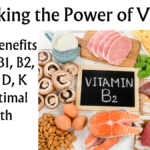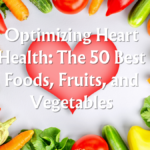Proper Nutritional Diet: Nourishing Your Body, Energizing Your Life (Part 1/15)
Proper nutrition is the cornerstone of a healthy and vibrant life. In this article, we’ll explore the importance of a well-balanced diet and delve into the names and benefits of foods, spices, fruits, nuts, and vegetables that can elevate your nutritional intake.
Optimal Nutrition: Proper Nutritional Diet
The Significance of Proper Nutrition
Nutrition is more than just fuel for the body; it’s the foundation of overall well-being. A proper nutritional diet not only sustains physical health but also contributes to mental clarity and emotional balance.
Building a Nutrient-Rich Plate
Importance of a Balanced Diet:
A balanced diet ensures that your body receives the right proportions of macronutrients (carbohydrates, proteins, and fats) and micronutrients (vitamins and minerals) necessary for optimal functioning.
Foods for a Nutritional Boost
Leafy Greens and Colorful Vegetables:
Rich in vitamins, minerals, and antioxidants, leafy greens and colorful vegetables form the basis of a nutrient-dense diet, supporting various bodily functions.
Lean Proteins for Muscle Health:
Incorporating lean protein sources like poultry, fish, and legumes promotes muscle health, aids in tissue repair, and keeps you feeling satiated.
Whole Grains for Sustained Energy:
Whole grains provide complex carbohydrates, offering sustained energy and essential nutrients like fiber, promoting digestive health.
Power-Packed Spices
Turmeric: Beyond Flavor:
Known for its anti-inflammatory properties, turmeric is a versatile spice that adds not only flavor but also potential health benefits to your meals.
Cinnamon: More Than Just Sweetness:
Beyond its delightful taste, cinnamon may help regulate blood sugar levels and provide antioxidant support.
Ginger: A Spice with Health Benefits:
Ginger, with its unique flavor, can aid digestion, reduce inflammation, and contribute to overall gut health.
Fruits for Sweet Health
Berries: Antioxidant Powerhouses:
Berries, such as blueberries and strawberries, are rich in antioxidants that combat oxidative stress and promote heart health.
Citrus Fruits for Vitamin C:
Citrus fruits like oranges and grapefruits are packed with immune-boosting vitamin C, vital for overall health.
Bananas: Nature’s Portable Snack:
Bananas are a convenient and nutrient-rich snack, providing potassium and energy-boosting carbohydrates.
Nutty Goodness
Almonds: The Nutrient-Rich Bite:
Almonds are a nutrient-dense snack, offering healthy fats, protein, and essential vitamins and minerals.
Walnuts: Omega-3 Boost:
Walnuts are a rich source of omega-3 fatty acids, promoting heart health and cognitive function.
Pistachios: A Heart-Healthy Snack:
Pistachios contribute to heart health by reducing bad cholesterol levels and providing antioxidants.
Vegetable Variety
Broccoli: A Cruciferous Superfood:
Broccoli, a cruciferous vegetable, is packed with nutrients and compounds that may have anti-cancer properties.
Bell Peppers: Colorful and Nutrient-Rich:
Bell peppers, with their vibrant colors, are high in vitamins A and C, supporting skin health and immunity.
Sweet Potatoes: Nutrient-Dense Goodness:
Sweet potatoes are nutrient-dense, offering vitamins, minerals, and fiber for overall well-being.
Crafting Flavorful Meals
Herbs for Taste and Health:
Herbs like basil, cilantro, and thyme not only enhance the flavor of dishes but also provide additional health benefits.
Garlic: More Than a Cooking Essential:
Garlic, known for its distinctive flavor, may also have immune-boosting and cardiovascular benefits.
Olive Oil: A Healthy Culinary Choice:
Choosing olive oil as a cooking medium provides healthy monounsaturated fats and antioxidants.
Benefits Beyond Nutrition
Physical Health:
Proper nutrition contributes to physical health by supporting organ function, maintaining a healthy weight, and reducing the risk of chronic diseases.
Mental Well-being:
Nutrient-rich foods play a role in mental well-being, influencing mood, cognitive function, and overall mental health.
Practical Tips for a Balanced Diet
Meal Planning and Preparation:
Effective meal planning ensures access to a variety of nutrients, while preparation methods impact the retention of nutritional value.
Portion Control for Optimal Nutrition:
Balanced portions help prevent overeating and ensure that you get the right mix of nutrients without unnecessary calorie intake.
Engaging in Dietary Diversity
Exploring New Ingredients:
Diversifying your diet introduces a broader range of nutrients and flavors, contributing to a more satisfying and nutrient-rich eating experience.
Cultural and Seasonal Variations:
Embracing cultural and seasonal variations in food choices enhances dietary diversity and broadens nutritional intake.
Adapting to Dietary Preferences
Vegetarian and Vegan Options:
Vegetarian and vegan dietary choices can provide ample nutrients, and proper planning ensures a well-rounded diet.
Gluten-Free and Dairy-Free Choices:
Individuals with specific dietary restrictions can still achieve nutritional balance through gluten-free and dairy-free options.
Cooking Techniques for Health
Healthy Cooking Methods:
Choosing healthy cooking methods like steaming, grilling, and baking preserves the nutritional content of foods.
Retaining Nutrients in Food Preparation:
Proper food preparation, including minimal processing and avoiding excessive heat, helps retain the maximum nutritional value.
Conclusion
Embrace a Nutrient-Rich Lifestyle: Your Guide to Health and Wellness
In conclusion, adopting a proper nutritional diet, enriched with a variety of foods, spices, fruits, nuts, and vegetables, is your gateway to a healthier and more energetic life. The journey to wellness begins with the choices you make in your kitchen.
FAQs
1. What are some easy ways to add more fruits and vegetables to my diet?
– Incorporate them into smoothies, salads, or as snacks. Experiment with different cooking methods to find what suits your taste.
2. How can I maintain a balanced diet on a busy schedule?
– Plan your meals, prep ingredients, and focus on nutrient-dense foods that provide sustained energy.
3. Are there specific spices that offer both flavor and health benefits?
– Yes, spices like turmeric, cinnamon, and ginger not only enhance taste but also provide various health benefits.
4. Can nuts be a part of a weight-loss diet?
– Yes, nuts can be included in moderation as they are nutrient-dense and can help keep you feeling full.
5. Is there an ideal cooking oil for a healthy diet?
– Olive oil is a healthy option due to its monounsaturated fats and antioxidant properties. However, moderation is key.






